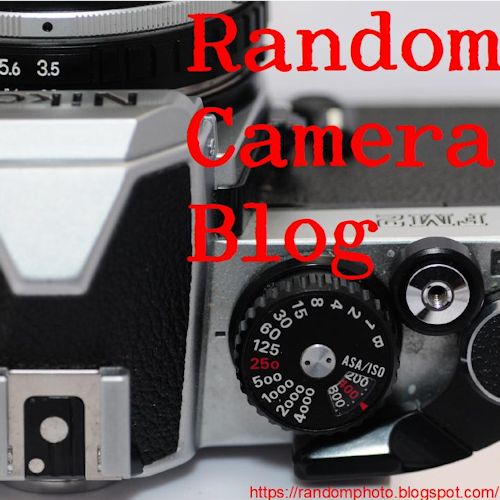In my many decades of photography, it should not come as a surprise that I’ve accumulated a lot of knowledge in my noggin. I look back to my teen years, when my first darkroom experience was in a high school class taught by my science teacher. That first roll developed from my Kodak Instamatic (Verichrome Pan) was magical, and I have never lost that sense of a magical moment when I pull a roll of film from the developing tank. Almost 50 years later, I still enjoy developing my film and using film cameras, despite the obvious alternative – which of course, I do also use. There are many reasons to use a digital camera, and just as many reasons to use film, especially black and white, which I believe offers more opportunities to explore creative avenues that digital just can’t match.
Over the course of many years on social media, and more recently, Reddit, it’s become clear to me that there are a lot of new users that want to experience what film cameras have to offer, and it’s also clear to me that many of those people are also unlikely to look for a book in a library about film photography. It’s hard to ask or answer questions without a common framework of terms, without a common grounding in basics.
First of all, photography is photography, whether it’s done with a digital sensor or a piece of film. Those basic functions of exposure – aperture, shutter speed, and sensitivity (ISO) are the same. If all you have ever used before is a smart phone, then I can understand your lack of knowledge. But if you have been using a camera – whether a point and shoot, a DSLR, or a mirrorless camera with interchangeable lenses, there are rudimentary principles behind those exposures that you should grasp. Any basic book of photography has that information, as well as the camera manuals. Those principles don’t change if you are using a film camera. In fact, things actually get simpler.
My first piece of advice is to BE CURIOUS and do your research. That means to actually read up on whatever it is that you want to do, and not expect a quick answer from someone on an online forum to a question that’s easily answered in most photography books. I have this suspicion that many people today do not actually read a damn thing, but rely on YouTube videos that may actually have misinformation. I don’t want to come across as a cranky old man – but you can’t ignore the value of an easily carried around book. A book such as the following listed here are my recommendations to learning about using a film camera and photography:
Bellamy, Andrew. 2017. Analog Photography. Reference manual for shooting film. Princeton Architectural Press, 190 pp. ISBN 978-1-61689-817-5 www.papress.com
Horenstein, Henry. 1983 (with numerous edition reprints). Black and White Photography, A Basic Manual. 229 pp. Little, Brown, and Company, Boston. ISBN-0-316-37314-1 This great resource is available from Thriftbooks.com for about $5.
Lovell, R.P., Zwahlen, F,C., Folts, J.A. Handbook of Photography, 4th edition. 1998. 385 pp., Delmar Publishers, Albany, NY. ISBN #0-8273-7913-7. Pretty much all you need to know, and a commonly used book for photography classes. It's less than $5 at Thriftbooks.com.
You can’t go wrong with the Horenstein book for black and white photography. It’s very popular in b&w photography classes, and I believe it’s the best book for beginning photographers.
Of course, there are many, many books out there for learning about photography, and about other photographers, but I point to those above as the best starting points. If you have one, you will find answers to most of the questions that beginning film photographers will have – and they are there in black and white, at all times.
There, now you have a good reference that’s been vetted by publishers and thousands of users, not the opinion of some random keyboard commando. From here on, you'll have a useful guide to get you started in using a film camera, and throughout your photography career.
If you are able to take a photography class, it's always a good option - sometimes they are offered as adult education classes, one-day workshops, or courses for college credit. The only "class" I ever had was the one in high school. Today, there is a vast reservoir of information online from film manufacturers, photography sites, and of course, social media. The other avenue is working with a mentor - a person with lots of experience and the ability to spend time with someone wanting to learn. In lieu of a class or a mentor, a book can be the best resource - always available at any time. Don't expect to know it all at once - photography can be as simple or as complex as you want. Take your time to learn the basics, and the rest will be much easier.




1 comment:
Thank you very much for the recommendations. I was able to pick up a nice copy of Black and White Photography, A Basic Manual at a very reasonable price from Thriftbooks.com. I am still trying to find my place in photography as I picked it up as a hobby after my wife passed away from cancer. I have got a lot of my information, supplies, and cameras from you and the fine folks at the FPP. It's greatly appreciated and thanks again.
Kevin Kelly
Post a Comment